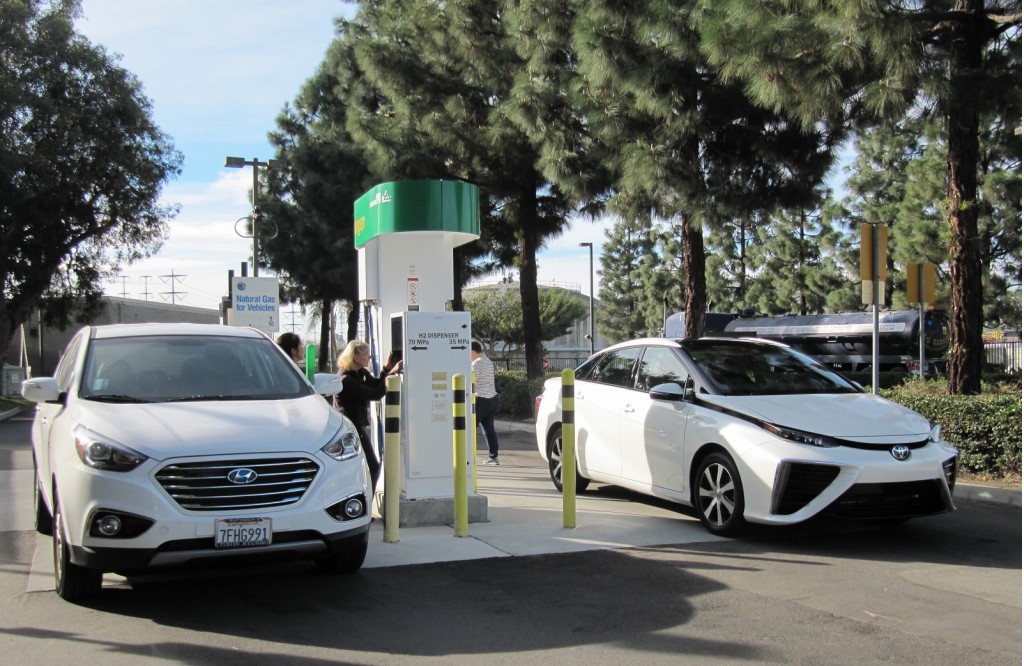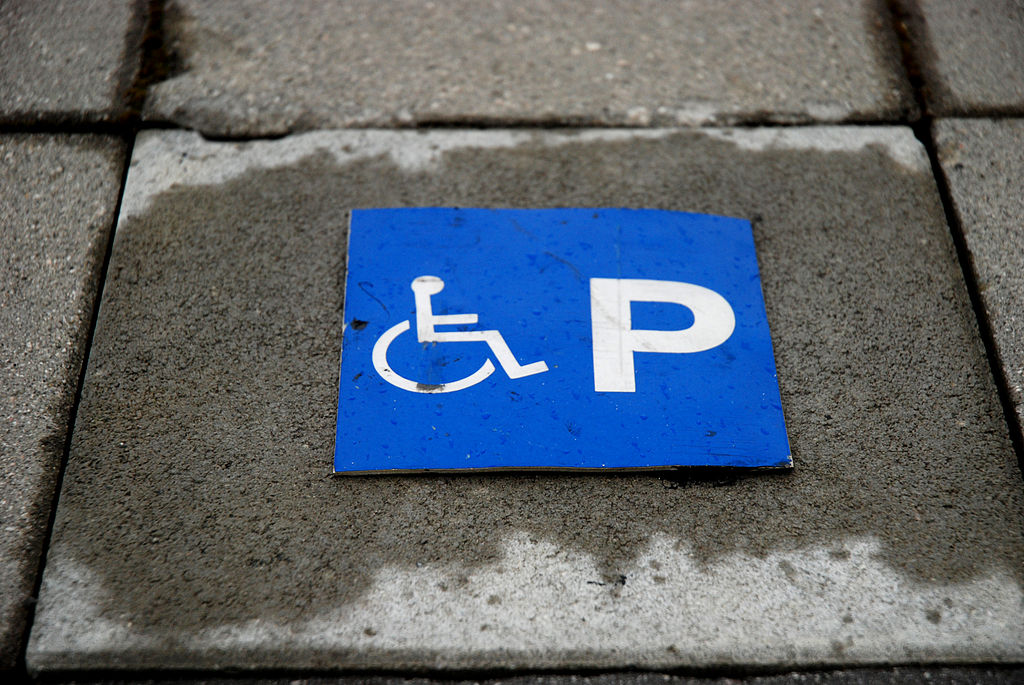How do you advertise new and innovative zero-emission vehicles, whether they're electric or fuel-cell cars?
It's a question that's bedeviled carmakers and their marketers, who continue to experiment with messaging, different audiences, and programs to get people into the cars.
The challenge is likely even greater for hydrogen fuel-cell cars, since the target audience is geographically limited to locations where fueling stations exist.
DON'T MISS: Toyota Prius Plug-In Hybrid Ad Shows Driver...Not Plugging In (Video)
Tesla owner and electric-car advocate Michael Thwaite was startled to see a video ad for the Toyota Mirai hydrogen fuel-cell sedan appear on an electric-car charging station at a Whole Foods market at 8th and Grand in downtown Los Angeles.
![Ad for Toyota Mirai on electric-car charging station, Los Angeles, Jan 2017 [photo: Michael Thwaite] Ad for Toyota Mirai on electric-car charging station, Los Angeles, Jan 2017 [photo: Michael Thwaite]](https://images.hgmsites.net/lrg/ad-for-toyota-mirai-on-electric-car-charging-station-los-angeles-jan-2017-photo-michael-thwaite_100589572_l.jpg)
Ad for Toyota Mirai on electric-car charging station, Los Angeles, Jan 2017 [photo: Michael Thwaite]
He snapped a photo of the ad, and posted it on Facebook, which was where we saw it.
The screen on the other side of the charging station, he noted, showed an ad offering two hours of free charging, courtesy of the new 2017 Chevrolet Bolt EV, GM's 238-mile electric hatchback.
The Bolt EV ad certainly makes sense, targeting either existing drivers of plug-in cars using the station or those interested enough to pay attention to the ads on the pedestal.
As for the Mirai ad, no doubt Toyota's agency felt that electric-car drivers would be a more likely audience for an advanced-tech and zero-emission vehicle than your average large SUV drivers parked in the store's main lot.
And in a bit of counter-programming, the Mirai ad contains the line, "Refills in 5 minutes or less."
That's presumably targeted at the electric-car driver accustomed to using the 240-Volt Level 2 charging offered at most stations in store parking lots.
ALSO SEE: Lexus Ad Not Only Sneers At Plug-Ins, But Gets Charging Wrong
Those charging sites can add 20 or 25 miles of range per hour, but certainly can't recharge the complete battery in the Mirai's claimed 5 minutes.
Electric-car owners, of course, will point out that since most plug-in cars are recharged at home overnight, that charging rate isn't necessarily an issue for them.
And, as more than one commenter suggested on Thwaite's Facebook post, hydrogen stations remain scarce.

2015 Hyundai Tucson Fuel Cell, 2016 Toyota Mirai at hydrogen fueling station, Fountain Valley, CA
California now has 25 retail hydrogen fueling sites up and running, according to the California Fuel Cell Partnership's locator map, with 18 more scheduled to open by the end of 2017.
Toyota and its luxury brand Lexus haven't made any friends over the past several years with various ads that target other alternative powertrains, whether diesel or plug-in electric.
Electric-car advocates have suggested that one ad in particular misrepresents the real-world experience of plug-in drivers.
CHECK OUT: Lexus CT 200h Hybrid Ad Slams Electric BMW i3: Gloves Come Off (Nov 2014)
In his post, Thwaite noted the general confusion produced around the issue of using that particular charging station.
The 2-hour free charging offer, he noted, conflicts with the 90-minute maximum parking time Whole Foods has posted at the entrance to its parking garage.
The charging station itself, he added, is located next to a pair of handicapped parking spaces—surely not intended for electric cars to use for charging.

Handicapped parking sign (photo by Ane Cecilie Blicfheldt/norden.org)
His conclusion about the Mirai ad on the back side of the charging station? "Face-palm."
Through December 2016, Toyota has delivered 1,106 Mirais to California lessees over its 15 months of availability.
[hat tip: John Briggs]
_______________________________________













